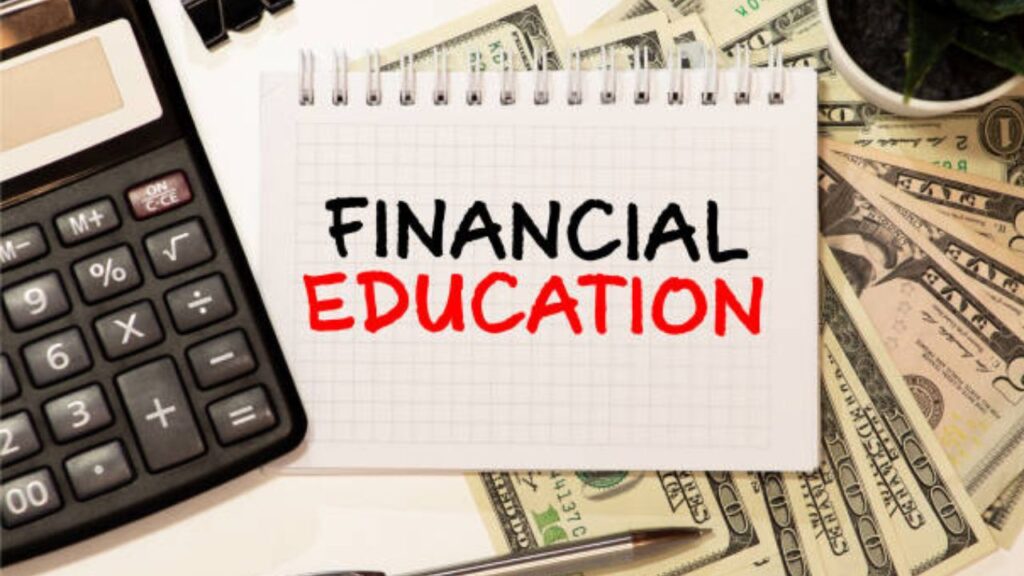Financial literacy is a crucial life skill that empowers individuals to make informed decisions about their money and achieve long-term goals. Building strong foundations in personal finance involves understanding key principles, developing smart habits, and adopting strategies to manage income. In this article, you will learn everything you need to know about personal finance and how to build financial literacy.
Research shows that individuals with strong financial literacy are more likely to make informed decisions, leading to long-term financial stability and wealth accumulation.
According to a 2023 survey by the Global Financial Literacy Excellence Center, only 33% of adults demonstrate a basic understanding of financial principles, highlighting the urgent need for comprehensive personal finance education.
What is personal finance
According to Wikipedia, Personal finance is the financial management that an individual or a family unit performs to budget, save, and spend monetary resources in a controlled manner, taking into account various financial risks and future life events.
When planning personal finances, the individual would take into account the suitability of various banking products (checking accounts, savings accounts, credit cards, and loans), insurance products (health insurance, disability insurance, life insurance, etc.), and investment products (bonds, stocks, real estate, etc.), as well as participation in monitoring and management of credit scores, income taxes, retirement funds, and pensions.
Understanding Personal Finance Basics
The first step in building financial literacy is learning concepts that you will need for your foundation in personal finance:
- Income: Understanding different sources of income (salary, investments, side hustles) and how to maximize it.
- Budgeting: Creating and sticking to a budget helps track income and expenses, allowing for better financial control and literacy.
- Savings: building an emergency fund and saving for short- and long-term goals to avoid ending up stranded.
- Debt Management: Knowing how to manage debt effectively, avoid bad debt, and pay off loans efficiently.
- Investing: learning how to invest in stocks, bonds, real estate, or other assets to grow wealth over time.
- Credit: Understanding credit scores, building and maintaining good credit, and using credit responsibly.
Core Components of Foundations in Personal Finance
Foundations in personal finance refer to the basic principles, skills, and knowledge necessary to manage money and make informed financial decisions throughout life effectively, and It involves understanding key aspects of personal financial management, such as budgeting, saving, investing, debt management, and planning for the future. Here are some core components of foundations in personal finance:
- Budgeting: Creating a plan to track and manage income and expenses, ensuring that money is allocated appropriately to pay debts and other anomalies.
- Saving: Setting aside money for emergencies, short-term goals, and long-term financial security is a core component of foundations in personal finance.
- Investing: Learning how to grow wealth by investing in assets like stocks, bonds, or real estate is a good component of foundations in personal finance.
- Debt Management: Understanding how to borrow responsibly and manage debt, including strategies for paying off loans.
- Credit: building and maintaining a good credit score, which affects borrowing and interest rates.
- Retirement Planning: Preparing for financial independence in retirement by saving early and investing wisely.
Financial Literacy and Education in Personal Finance

Financial literacy refers to the ability to understand and effectively use various financial skills, including personal financial management, budgeting, saving, investing, and understanding debt. It is critical because it empowers individuals to make informed decisions, manage their money efficiently, and work toward long-term financial security. It is also one of the foundations in personal finances.
Why Financial Education is Important
- Empowering Personal Control: Financial education provides individuals with the skills and knowledge needed to take control of their financial future and personal finances.
- Reducing Stress: Financial knowledge reduces anxiety related to money by providing clear strategies for managing expenses, building security, and helping your time management.
- Avoiding Common Pitfalls: Financial education helps individuals avoid common financial mistakes like overspending, taking on high-interest debt, or missing investment opportunities.
- Improving financial stability: financially educated individuals are more likely to make informed decisions about borrowing, investing, and saving, leading to greater overall financial stability
Impact of Financial Literacy
- Higher Savings Rates: People with financial literacy are more likely to prioritize savings and develop the habit of putting money aside for future needs.
- Better Investment Choices: Understanding investment principles helps individuals make informed decisions, maximizing returns while minimizing risks.
- Debt Reduction: Financial literacy reduces the chances of accumulating bad debt and fosters a proactive approach to paying off loans.
- Improved Retirement Security: With knowledge of compound interest and retirement plans, individuals are more likely to contribute early and consistently toward their retirement savings.
- Greater Financial Independence: A solid foundation in personal finance allows individuals to build long-term wealth and achieve financial independence, free from reliance on credit or assistance.
Financial Planning and Goal Setting
Financial planning is the process of managing your finances to achieve specific life goals. It involves evaluating your current financial situation, setting goals, creating a plan, and taking action to meet those objectives. Goal setting is crucial because it provides direction and motivation, helping individuals stay focused on long-term financial security.
Steps in Financial Planning
Assess Your Current Financial Situation
- Income: Review your income sources, including salary, investments, and side earnings. It is the foundation in personal finances.
- Expenses: Track both fixed (rent, utilities), and variable (groceries, entertainment) expenses to understand where your money goes.
- Assets and Liabilities: List your assets (cash, investments, property) and liabilities (loans, credit card debt) to calculate your net worth.
- Cash Flow: Determine how much money is left after expenses to allocate toward savings or investing.
Set Financial Goals
- Short-Term Goals: These are goals you want to achieve within 1-3 years. Examples include building an emergency fund, paying off credit card debt, or saving for a vacation.
- Medium-Term Goals: These goals typically range from 3-5 years. Examples include saving for a down payment on a house, buying a car, or furthering education.
- Long-Term Goals: These goals span 10 years or more and include retirement planning, funding your child’s education, or purchasing real estate.
When setting goals, use the SMART criteria:
- Specific: Clearly define the goal (e.g., save $10,000 for a down payment on a house).
- Measurable: Have a way to track your progress (e.g., save $500 per month), and how you intend to spend it.
- Achievable: Ensure the goal is realistic based on your income and expenses.
- Relevant: The goal should align with your life priorities (e.g., owning a home).
- Time-Bound: Set a deadline for achieving the goal (e.g., 2 years).
Create a Financial Plan
- Budgeting: Create a budget that aligns with your goals by controlling spending and prioritizing savings and investments.
- Emergency Fund: Set aside 3-6 months’ worth of living expenses in an easily accessible account to cover unforeseen events.
Implement the Plan
- Start taking actionable steps to meet your goals. This may involve automating savings, setting up investment accounts, or making adjustments to your lifestyle to free up more funds for long-term goals.
Monitor and Adjust the Plan
- Regularly review your financial plan to ensure you’re on track. Life circumstances may change (e.g., a new job, marriage, or children), requiring adjustments to your financial goals and strategies.
Investment and Wealth Building

Investment and wealth building are critical components of personal finance that focus on growing your assets and securing long-term financial stability. Investments are assets or vehicles into which individuals can allocate funds with the expectation of generating income or appreciating over time.
Wealth-Building Strategies
Start Early
- The earlier you start investing, the more you benefit from compound interest, where your earnings generate even more earnings over time.
Consistent Investing
- Dollar-cost averaging: This strategy involves investing a fixed amount of money at regular intervals, regardless of market conditions. This reduces the impact of market volatility and lowers the risk of making poor timing decisions.
- Regular contributions: By regularly contributing to investment accounts like 401(k)s or IRAs, you ensure that your wealth continues to grow steadily.
Diversification
- Spread your investments across a variety of asset classes (stocks, bonds, real estate, etc.) and sectors to reduce risk. Diversification ensures that you are not overly exposed to the poor performance of a single investment or sector.
Risk Management
- Assess your risk tolerance: Understand how much risk you can handle based on your financial situation, time horizon, and goals. Younger investors with longer time horizons can afford to take more risks but those nearing retirement may prefer more conservative investments.
- Reinvest earnings
- Reinvesting dividends, interest, or capital gains helps accelerate wealth growth. Compounding these returns allows you to benefit from exponential growth.
- Tax-Advantaged Accounts
- Maximize contributions to tax-advantaged accounts such as 401(k), Roth IRAs, or traditional IRAs. These accounts provide tax benefits that can enhance your wealth-building efforts by deferring or eliminating taxes on contributions, growth, and withdrawals.
- Long-Term Focus
- Wealth building is a long-term strategy. Avoid trying to time the market or make impulsive investment decisions based on short-term market fluctuations. Stick to your plan and stay focused on your goals.
- Real estate investing
- Real estate can be a powerful tool for building wealth through appreciation, rental income, or both. As property values increase over time, you can also benefit from leverage by using borrowed money to purchase the property.
Personal Finance Risk Management and Long-Term Security
Personal finance risk management involves identifying, assessing, and taking steps to minimize financial risks that could jeopardize your financial stability. It is one of the steps to take if you want a foundation in personal finances
Importance of Risk Management in Personal Finance
Protects Against Uncertainty
Risk management safeguards your financial health by preparing for unforeseen events like medical emergencies, accidents, or economic crises.
Ensures Long-Term Stability
Effective risk management helps maintain financial security over time, ensuring that short-term disruptions do not derail your long-term financial goals.
Minimizes Losses
By having protections like insurance, emergency funds, and diversified investments, you can reduce the financial impact of unexpected events.
Conclusion
If you want a good foundation in personal finance, then you should be financially literate. Incorporating all these aspects into your personal finance strategy will enable you to build a financially secure future. By continuing to learn, plan, invest, and protect your finances, you will be well-prepared to meet both short-term needs and long-term aspirations, leading to financial independence and a secure future.
Leave a Reply